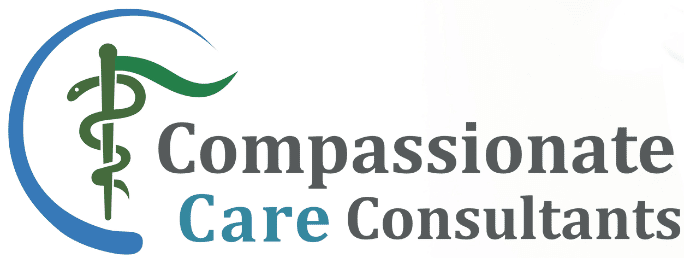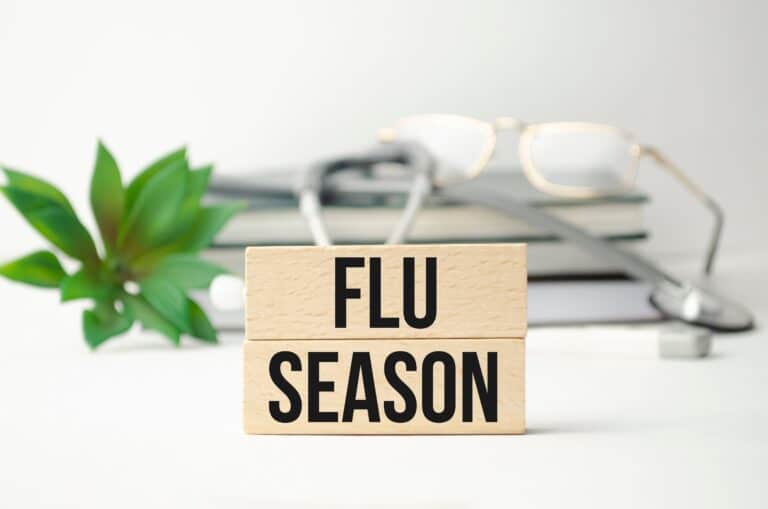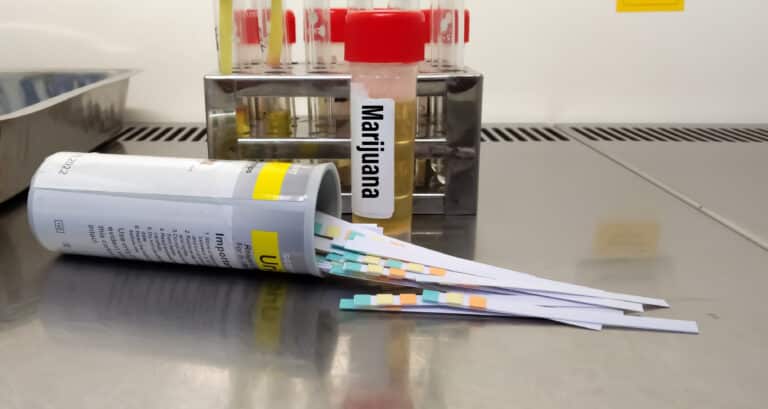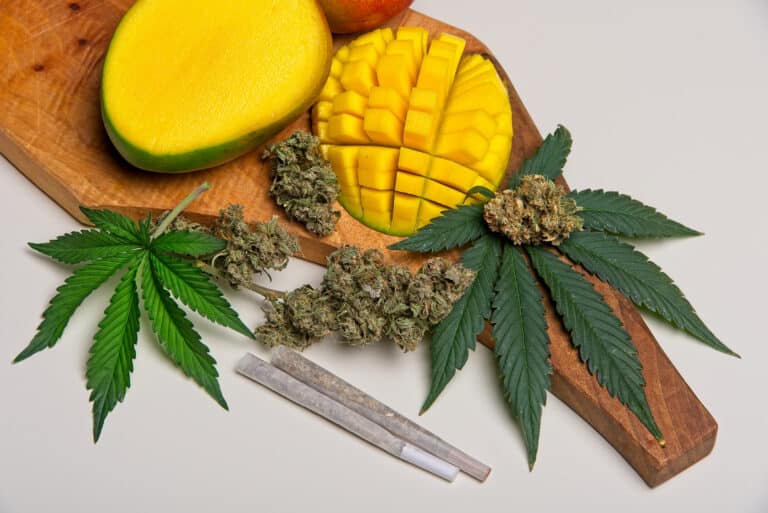https://compcaremd.com/wp-content/uploads/2022/05/1-1.jpg
What is CBD?
Cannabidiol (CBD) is a chemical in the Cannabis sativa plant, also known as cannabis or hemp. One specific form of CBD is approved as a drug in the U.S. for seizure. This includes cannabidiol (CBD) and tetrahydrocannabinol (THC), two natural compounds found in plants of the Cannabis genus.
Over 80 chemicals, known as cannabinoids, have been found in the Cannabis sativa plant. Delta-9-tetrahydrocannabinol (THC) is the most famous ingredient in cannabis.
But CBD is obtained from hemp, a form of the Cannabis sativa plant that only contains small amounts of THC.
CBD seems to have effects on some chemicals in the brain, but these are different than the effects of THC.
How does it work?
Uses & Effectiveness
Likely Effective for
- Seizure disorder (epilepsy). A specific prescription product (Epidiolex, GW Pharmaceuticals) is approved by the US FDA to treat seizures caused by Dravet syndrome, Lennox-Gas taut syndrome, or tuberous sclerosis complex.
It is unclear if other forms of CBD are helpful for seizure. For now, stick with the prescription product.
There is interest in using CBD for a number of other purposes, but there isn’t enough reliable information to say whether it might be helpful for these uses.
Possibly Effective for
- Multiple sclerosis (MS). A prescription-only nasal spray product (Sati vex, GW Pharmaceuticals) containing both 9-delta-tetrahydrocannabinol (THC) and cannabidiol has been shown to be effective for improving pain, muscle-tightness, and urination frequency in people with MS.
This product is used in over 25 countries outside of the United States. But there is inconsistent evidence on the effectiveness of cannabidiol for symptoms of multiple sclerosis when it is used alone.
Some early research suggests that using a cannabidiol spray under the tongue might improve pain and muscle tightness, but not muscle spasms, tiredness, bladder control, mobility, or well-being and quality of life in patients with MS.
Side Effects
When taken by mouth: CBD is possibly safe to take in appropriate doses. Doses of up to 200 mg daily have been used safely for up to 13 weeks.
With the guidance of a healthcare provider, a specific prescription CBD product (Epidiolex) has been used at higher doses and for longer durations.
CBD can cause some side effects, such as dry mouth, low blood pressure, light headedness, and drowsiness. Signs of liver injury have also been reported with high doses of the prescription form of CBD, called Epidiolex.
When applied to the skin: There isn’t enough reliable information to know if CBD is safe or what the side effects might be.
Special Precautions and Warnings
Pregnancy and breast-feeding: It may be unsafe to take CBD if you are pregnant or breast feeding. CBD products can be contaminated with other ingredients that may be harmful to the fetus or infant. Stay on the safe side and avoid use.
Children: It is possibly safe for children to take a specific prescription CBD product (Epidiolex) by mouth in doses up to 25 mg/kg daily. This product is approved for use in children with certain conditions who are at least 1 year old. It isn’t clear if other CBD products are safe in children.
Liver disease: People with liver disease may need to use lower doses of CBD.
Parkinson disease: Some early research suggests that taking high doses of CBD might make muscle movement and tremors worse in some people with Parkinson disease.
What Is THC?
THC stands for delta-9-tetrahydrocannabinol or Δ-9-tetrahydrocannabinol (Δ-9-THC).
It is a cannabinoid molecule in marijuana (cannabis) that’s long been recognized as the main psychoactive ingredient—that is, the substance that causes people who use marijuana to feel high.
THC is just one of more than 500 different substances—and 100 different cannabinoid molecules—in marijuana.
Although THC is the most recognized, another important cannabinoid molecule that has received major interest is cannabidiol (CBD).
How THC Works?
THC works by attaching to the body’s cannabinoid receptors, which are found throughout the brain and nervous system. THC can be detected in the body much longer than most other drug compounds, although the psychoactive effects only last a few hours.
THC is stored in body fat and organs for three to four weeks. Hair follicle testing may identify THC after even longer periods of time, around 90 days. Urine testing is often used but has been found to be an unreliable method of detection.
Forms of THC
THC is often smoked as marijuana (dried leaves of the Cannabis plant), but there are actually a number of different ways it can be used. THC can be consumed by:
- Inhalation: This is the fastest method of delivery and produces the quickest psychoactive effects, often within minutes. THC can be inhaled via smoking, vaping, or dabbing. Recent reports suggest that vaping THC oilmay pose safety risks that warrant further investigation.
- Oral ingestion: THC can be taken by mouth in the form of capsules, edibles, tinctures, or oils. While this method of delivery takes longer to have an effect, the drug’s effects tend to last longer.
- Topical application: THC can also be included in lotions, balms, salves, oils, and bath salts that are then applied to the skin. The effects of this method are usually localized, which means that they are unlikely to have psychoactive effects. However, such products may be helpful for reducing pain and inflammation.
- Sublingual administration: THC can also be consumed as lozenges, sprays, or dissolvable strips that are placed under the tongue and dissolved.
THC in CBD Products
With the popularity of CBD, there has been a major market shift toward producing a seemingly endless variety of CBD products. Some of these products may contain traces of THC (around 0.3% to 0.9%), depending on how they’re formulated.
However, if you’re looking for a CBD product without any THC, be sure to select one that uses third-party testing to certify the purity of the product.
This small concentration is highly unlikely to result in a high feeling, and some experts argue that the effectiveness of CBD is potentiated by small amounts of THC.
Uses of THC
THC is used recreationally, but it has a number of medicinal uses as well. Marijuana has been used for medicinal purposes for thousands of years, although scientific research on its use to alleviate and treat illness is still relatively recent. Both compounds interact with your body’s endocannabinoid system, but they have very different effects.
Some of the ailments that THC may help include:
- Anxiety
- Depression
- Glaucoma
- Inflammation
- Inflammatory bowel disease (IBD)
- Insomnia
- Irritable bowel syndrome (IBS)
- Migraines
- Multiple sclerosis
- Muscle spasticity
- Nausea
- Opioid use disorder
- Pain
- Poor appetite
- Post-traumatic stress disorder (PTSD)
- Seizures
- Symptoms associated with HIV/AIDS
The FDA has also approved the synthetic THC medication Dronabinol (sold under the brand names Marinol and Syndros) and a drug containing a synthetic substance similar to TCH known as nabilone (brand name Cesamet). Dronabinol is used to treat vomiting and nausea caused by chemotherapy and low appetite and weight loss caused by HIV/AIDS. Nab lone is also used to treat nausea and vomiting.
Impact of THC
THC stimulates the release of a neurotransmitter called dopamine in the brain, which is what causes feelings of euphoria. Although, the effects on the body can vary from one person to the next,
People using THC may experience:
- Altered perception of time
- Feelings of relaxation
- Heightened sensory perception
- Increased appetite
While it can cause pleasant effects, TCH can also lead to adverse reactions as well. Some of the most common include coughing fits, anxiety, and paranoia, along with chest or lung discomfort, and “body humming.” Some people also experience fainting, hallucinations, or cold sweats due to THC use.
Potential Pitfalls of THC
There is considerable research-based evidence that THC is associated with an increased risk of psychosis, both among adolescents and adults.
It is also linked to increased anxiety, learning impairment, and decreased memory formation.
CBD has been found to help counter these effects, reducing anxiety, improving learning ability, and working as an antipsychotic—although much of the available research is on animals.
When taken together, as is the case with marijuana use, CBD seems to reduce the negative effects of THC.
Is Delta-9 THC Addictive?
Cannabis is the most commonly used federally illegal substance in the United States. THC tolerance and dependence (precursors to addiction) have been widely documented.
According to the National Institute on Drug Abuse (NIDA), about 30% of people who use marijuana will become addicted—and using the drug prior to age 18, when the brain is still developing, increases the likelihood of cannabis use disorder four- to seven-fold.
Amount of THC in Marijuana
Americans are definitely not dealing with the same pot as in the past. This is because today’s marijuana is much more potent, with THC concentration levels increasing from 9.75% in 2009 to 13.88% in 2019.
The amount of THC contained in marijuana varies by the way that the cannabis is prepared for use, such as leaf/bud, hashish, or hashish oil. THC levels may exceed 50% in products made from marijuana extracts.
How to Get Help
If you or a loved one wants to stop using THC but are finding this difficult, several options exist. Treatments for cannabis use disorder that show promise for providing positive results include:
- Cognitive-behavioral therapy, which helps people identify and correct behaviors associated with drug use
- Contingency management is a treatment approach that involves receiving rewards when the desired behavior occurs (or does not occur)
- Motivational enhancement therapy promotes an internal desire for change and motivation to engage in treatment
While some suggest that drugs such as selective serotonin reuptake inhibitors (SSRIs) and anxiolytics (anti-anxiety medications) may help treat cannabis use disorder, evidence is lacking due to small study sizes and varying methods of assessing treatment outcomes.
CBD vs. THC:
THC
- Psychoactive (produces a high)
- Sourced from marijuana
CBD
- Non-psychoactive (does not produce a high)
- Typically sourced from hemp
Psychoactive Properties
CBD and THC affect different receptors in the brain. Because of this, CBD typically does not have psychoactive effects—in other words, it won’t cause you to get high. THC seems to have a greater effect on the way the mind perceives pain, whereas CBD may work to ease pain at the local source..
Sources
While CBD can come from either hemp or marijuana, it is often derived from hemp in order to avoid the addition of larger amounts of THC. THC, on the other hand, is derived from marijuana.
CBD that comes from marijuana may contain more THC, which may not be ideal for people who are trying to avoid THC.
Some CBD products that are produced from cannabis, for example, may contain more THC than the label suggests.
How to Take CBD and THC
Both THC and CBD can be consumed in a number of different forms. THC may be consumed as marijuana by smoking, but a number of other cannabis products are also available including:
- Oils
- Tinctures
- Sprays
- Vape products
- Edibles including gummies and chocolates
- Beverages containing marijuana oil
Like THC, CBD can also be consumed in a number of different forms. CBD oils can be formulated for vaping, although there have been recent concerns about the health dangers posed by vaping.
It can also be added to lotions and salves to apply to skin. It is important to note that the effects of these topical products will be localized since they are not being ingested.
CBD can also be taken orally as a tincture, oil, capsule, or spray. Edible CBD products are also popular and include gummies, candies, and beverages.
Before You Take CBD or THC
THC and CBD may also have an effect on some health conditions and can interact with certain medications, so you should always use caution before taking these products.
These substances might impact how medications are metabolized by your body. They can also heighten feelings of anxiety in some cases.
Copyright © 2024 Medical Marijuana Doctor - MMJ Doctor Near Me
Site by CannaPlanners




